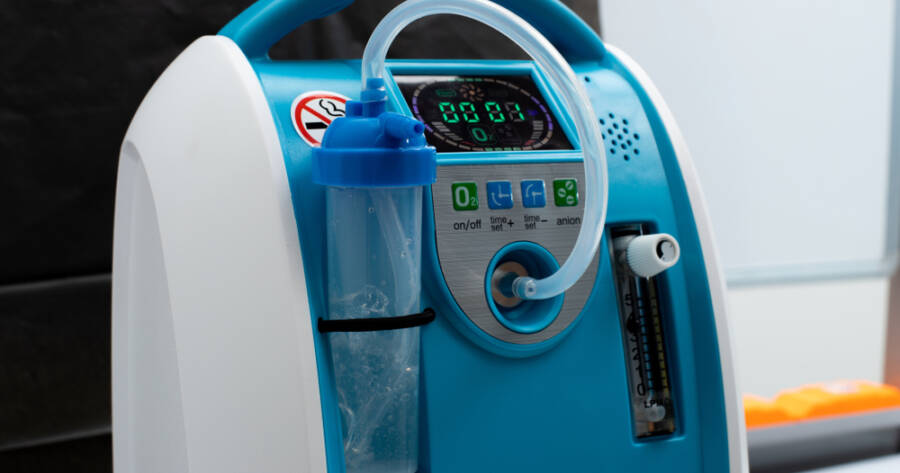Living with Chronic Obstructive Pulmonary Disease (COPD) often means navigating a wide range of healthcare tools to maintain a good quality of life. Oxygen therapy is one of the cornerstones of managing COPD symptoms for many patients. Among the various options available, compact oxygen concentrators stand out for their convenience and portability. However, choosing the right device can be overwhelming. This guide will help you understand the key factors to consider when selecting the best compact oxygen concentrator.
Understanding Compact Oxygen Concentrators
Compact oxygen concentrators are smaller, portable versions of traditional oxygen machines. These devices draw in ambient air, filter out nitrogen, and deliver concentrated oxygen to the user. They are particularly beneficial for individuals who need oxygen therapy on the go, as they are lightweight and easy to carry.
Key Benefits of Compact Oxygen Concentrators
- Portability: Most devices are designed to be lightweight and include carrying cases or shoulder straps.
- Battery options: Many offer rechargeable battery systems, ideal for travel or extended use outside the home.
- Continuous and pulse flow modes: Some models allow users to choose between these two delivery options based on their specific oxygen needs.
It’s essential to consult a healthcare provider before deciding on a concentrator to ensure it aligns with your medical requirements.
What to Look for in a Compact Oxygen Concentrator
When comparing compact oxygen concentrators, there are several critical factors to consider. Each patient’s needs will vary, so it’s important to evaluate features based on your lifestyle and health.
1. Oxygen Flow Rate
The flow rate refers to the amount of oxygen the device can deliver, measured in liters per minute (LPM). Patients with severe COPD may require higher flow rates. Some devices provide adjustable settings, while others are fixed. Always confirm your oxygen prescription with your doctor before purchasing.
2. Size and Weight
Since portability is a key advantage of compact oxygen concentrators, size and weight matter. Models typically weigh between 2 and 10 pounds. Smaller devices may offer fewer features, so balance portability with functionality based on how you plan to use it.
3. Battery Life
Consider how long the device can run on a single charge. This is particularly crucial for active users or those who travel frequently. Some models include additional battery packs for extended use.
4. Noise Levels
Compact oxygen concentrators vary in noise output. Quieter models are ideal for individuals who want discretion or plan to use the device in shared spaces.
5. Maintenance Requirements
Certain models require regular filter replacements or other maintenance tasks. Understanding the upkeep involved can help you select a device that fits your routine.
Top Brands and Models to Consider
While this article doesn’t endorse specific products, some popular brands often recommended by healthcare professionals include Inogen, Philips Respironics, and CAIRE. Always research customer reviews and consult with your doctor to identify which model may work best for you.
Tips for Choosing the Right Device
- Trial periods and warranties: Some manufacturers and suppliers offer trial periods or satisfaction guarantees. These allow you to test the device at home to ensure it meets your needs. Look for warranties that cover both parts and labor for added peace of mind.
- Check compatibility with accessories: Many oxygen concentrators are compatible with optional accessories, such as car chargers, external batteries, or mobile apps. Depending on your lifestyle, these extras could enhance your experience.
- Insurance and financing: Check with your insurance provider to see if your purchase is covered. Some suppliers also offer financing options, which can make higher-end models more accessible.
- Seek professional guidance: Never make a decision without consulting your doctor or respiratory therapist. They can recommend specifications based on your medical history and oxygen requirements.
Safety Considerations When Using Oxygen Concentrators
Safety is paramount when using oxygen concentrators, as improper use can pose risks. Follow these guidelines to stay safe:
- Avoid smoking: Oxygen is highly flammable, and smoking near an oxygen concentrator is extremely dangerous.
- Keep the device ventilated: Ensure the device is placed in a well-ventilated area to prevent overheating.
- Follow manufacturer guidelines: Always adhere to the user manual for maintenance and operation instructions.
These precautions can help ensure your concentrator operates effectively and safely.
Maintaining Your Compact Oxygen Concentrator
Proper maintenance not only ensures the longevity of your device but also maintains its efficiency. Here are some tips:
- Clean filters regularly: Many models require the filter to be cleaned or replaced to maintain optimal airflow.
- Inspect for wear and tear: Routinely check for any cracks, leaks, or other signs of damage.
- Store properly: When not in use, keep the concentrator in a dry, dust-free environment.
Most manufacturers provide detailed maintenance schedules in the user manual.
Learn More Today!
Finding the best compact oxygen concentrator for COPD patients involves careful consideration of your medical needs, lifestyle, and budget. Factors like oxygen flow rate, portability, battery life, and noise levels play a significant role in determining the right choice.
Consulting with your healthcare provider is essential to ensure the device aligns with your prescribed oxygen therapy. By taking the time to research and compare options, you can find a concentrator that supports your independence and enhances your quality of life. Remember to prioritize safety and regular maintenance to get the most out of your device.
